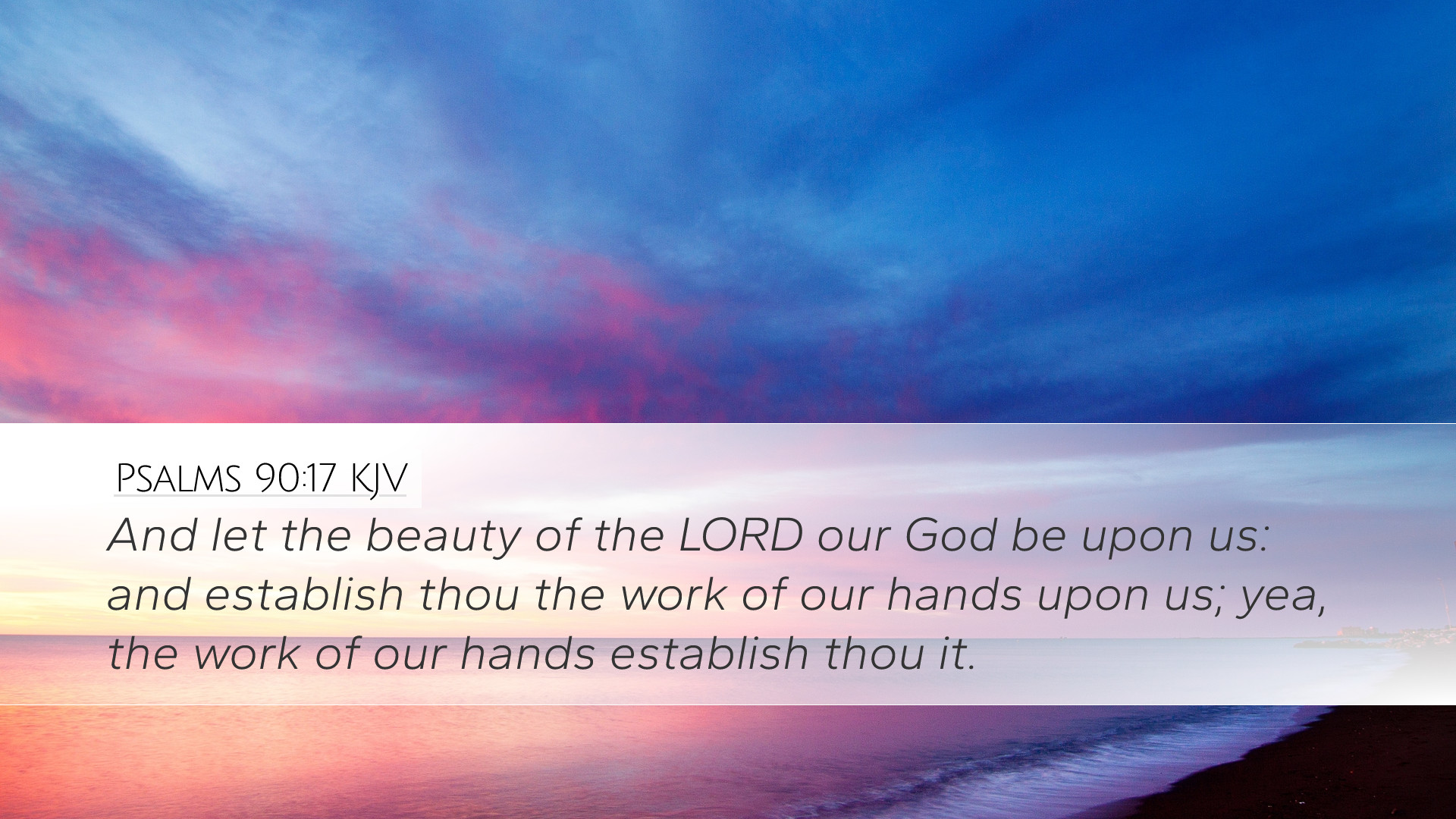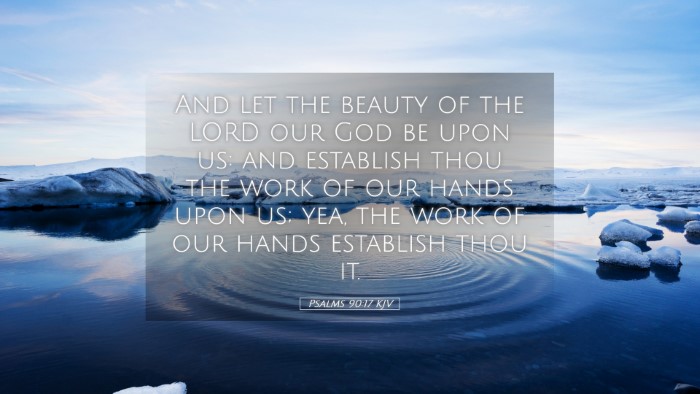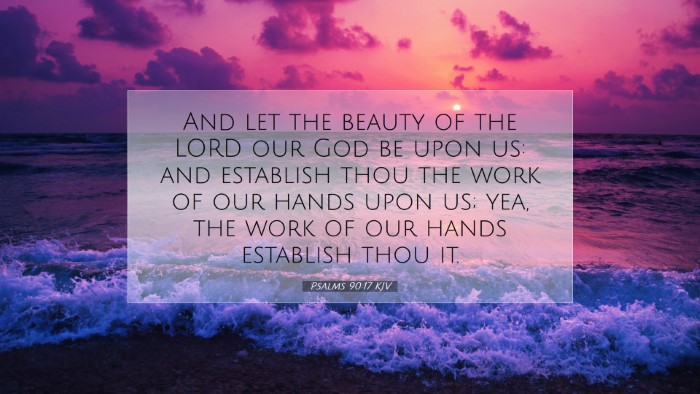Psalms 90:17 Commentary
Verse: Psalm 90:17 - "And let the beauty of the Lord our God be upon us: and establish thou the work of our hands upon us; yea, the work of our hands establish thou it."
Introduction
This poignant verse encapsulates the dual themes of divine beauty and human labor. The Psalmist, traditionally understood to be Moses, is expressing a desire for the presence and favor of God to rest upon His people. Such contemplation invites deep theological reflection regarding the relationship between God's beauty, favor, and the efficacy of human endeavors.
Insights from Matthew Henry
Matthew Henry provides valuable insights into this verse by emphasizing the importance of God's approval resting on our endeavors. He notes that the “beauty of the Lord” signifies His glory, presence, and favor. The Psalmist implores God not only for His beauty to shine upon them but also for the works of their hands to be established. This highlights a crucial biblical principle: that human efforts are futile without divine blessing. Henry emphasizes the need for believers to seek God’s grace and favor in their work, asserting that any accomplishments we achieve are ultimately the result of God’s blessing.
Insights from Albert Barnes
Albert Barnes offers a detailed examination of the verse, particularly regarding the phrase “the work of our hands.” He explains that this can refer to both physical labor and spiritual endeavors, such as teaching, evangelism, and ministry. Barnes stresses that the effectiveness of these works is contingent upon divine intervention. He points out that without God's establishment, even the best efforts may yield little fruit. This idea propels readers toward reliance on God in all aspects of life, encouraging pastors and leaders to pray for the sanctification and divine efficacy of their works, recognizing that each success is ultimately from God.
Insights from Adam Clarke
Adam Clarke emphasizes the poetic structure of the Psalm, calling attention to the heartfelt plea for God’s beauty and favor. He asserts that this becomes a prayer not just for recognition but also for the empowerment to fulfill one’s calling effectively. Clarke interprets the “beauty of the Lord” as a transformative power that influences both the character of the laborer and the nature of the work accomplished. He proposes that when God's beauty is upon them, it leads to works that have lasting, eternal impact. Clarke’s analysis encourages believers to reflect on their spiritual state, highlighting that recognition of God's beauty can inspire transformation in all their endeavors.
Theological Reflections
The combination of these commentaries leads us to several theological reflections:
- Divine Assistance: The request for God's beauty to be upon us implies a recognition of human limitations and the need for divine assistance in our efforts.
- Human Responsibility: While the establishment of work is contingent upon divine favor, there exists a human responsibility to labor diligently in faith and action.
- Impact of God's Beauty: The concept of God's beauty extends beyond aesthetic appreciation; it influences our character and the quality of our work, aligning them with divine purpose.
- Prayer as a Means of Establishing Work: Both spiritual and physical works must be undergirded by fervent prayer, recognizing God's sovereignty and our dependence upon Him.
Practical Applications
The implications of Psalm 90:17 can be profound for pastoral ministry, scholarship, and personal spiritual growth:
- Encouragement for Leaders: Pastors are reminded to seek God's presence in their work, understanding that the effectiveness of ministry is not merely in strategy but in divine blessing.
- Spiritual Reflection: For students and scholars, this verse invites ongoing reflection on how one's academic pursuits align with divine purpose and how they seek divine aid in their studies.
- Community Engagement: Churches are encouraged to support missions and community services as acts of worship, seeking God's beauty to enhance the impact of their efforts.
- Personal Application: Individuals are called to evaluate their daily tasks, recognizing the potential for ordinary activities to reflect God's beauty when carried out with intention and prayer.
Conclusion
Psalm 90:17 serves as a powerful reminder of the interplay between divine favor and human effort. The insights from Matthew Henry, Albert Barnes, and Adam Clarke enrich our understanding, encouraging believers to rely on God's beauty and power. As we seek God's presence in our labors, may we experience His holy establishment in our work, leading to fruitful and lasting impacts in our churches, communities, and lives.


